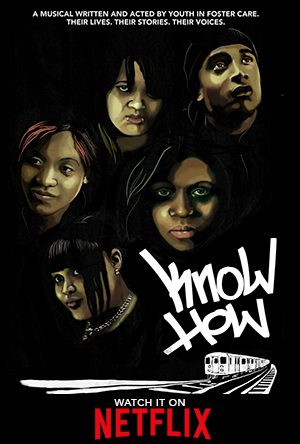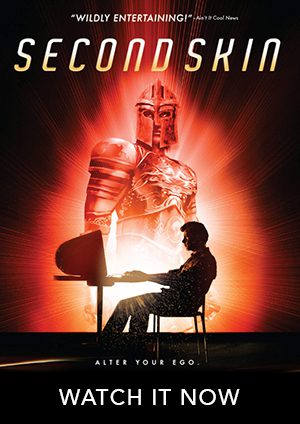As a teen, I was warped by reading swords and sorcery novels, painting miniature goblin and dwarf figurines, and collecting polyhedral dice. Twenty-five years later, I wrote the book Fantasy Freaks and Gaming Geeks to unearth the root of my attraction to tales of magical powers and heroic deeds. But one quest I didn’t get around to completing: making a list of fantasy and gaming’s all-time heroes.
Who is on the all-star team of fantasy authors? Which gods eternally lodge in the Valhalla of gaming (and by “gaming,” we don’t mean Texas Hold-Em, we mean Dungeons & Dragons). Who had the most influence on the genre?
I’ve given it a shot (listed here by year of birth). Several didn’t make the cut. I have my biases. Of course, you’ll quibble over my selections. But isn’t that what these Top-Whatever lists are all about?
OK, get out your 20-sided dice. Game on!
 1. H.G. Wells
1. H.G. Wells
You probably know that Wells wrote “The War of the Worlds” and “The Time Machine.” Lesser known is this: Before Wells came along, science fiction didn’t exist as its own genre. Along with Jules Verne (“20,000 Leagues Under the Sea”), Wells popularized what at the time was known as “scientific romance,” churning out tons of titles – “The Invisible Man,” “The Island of Doctor Moreau,” “The First Men on the Moon” – which became perennial faves for screen adaptation. Not only was Wells the wellspring of science fiction, but by publishing a book called “Little Wars,” detailed rules for table-top miniatures combat, he had invented the war game.
2. J.R.R. Tolkien
Tolkien’s day job was teaching philology (the history of languages) and Anglo-Saxon at Oxford. But his heart was elsewhere: Middle-earth, the setting for his books “The Hobbit,” “The Lord of the Rings” and “The Silmarillion.” His fellow profs mocked him for his tales of elves, magic rings, and evil armies (although colleague C.S. Lewis understood him). By pioneering the creation of a rich, believable world complete with races, back stories, maps, poems, and languages – what he called his “legendarium” – Tolkien revived high fantasy for the 20th century, cementing his position as probably the single most influential fantasy writer ever.
 3. Robert E. Howard
3. Robert E. Howard
Out of Nowheresvile, Texas, a 23-year-old writer began publishing various genre stories in the pulp magazine “Weird Tales.” But it was Howard’s first Conan the Barbarian tale, appearing in 1932, that vaulted him into orbit. Unlike Tolkien’s “high fantasy,” Howard’s Conan stories, set in the Hyborian Age, were a brew of lower-brow fantasy, horror, mythology, and historical romance, with plenty of swordplay and encounters with the supernatural. He later became buddies with H. P. Lovecraft, and influenced writers like C. L. Moore and Fritz Leiber. But the life of swords and sorcery’s founder came to an abrupt end: He committed suicide at the age of 30.
 4. Ralph Baer
4. Ralph Baer
Back in 1966, in Nashua, N.H., Baer was working for a defense contractor and developed something he called the “Brown Box.” The technology was licensed to Magnavox and, in 1972, a new product was unleashed on the public: the Magnavox Odyssey, the first home video game console game that could be played on your average black and white television set. He also invented the first light gun for shooting games. What about Pong, you ask? Baer’s tennis game predated Atari’s by three years. All these firsts earn Baer the title “The Father of Video Games” – plus Corruptor of Teenage Minds and Waster of Quarters and Time.
P.S. Juan Carlos from this very magazine produced a documentary about Ralph for Vice Magazine. Really interesting stuff.
 5. Ursula K. LeGuin
5. Ursula K. LeGuin
Best known for her “Earthsea” series and other richly imagined novels, LeGuin also writes poetry, children’s books, essays, and short stories. She sure racks up the literary awards: five Hugos, six Nebulas, the Gandalf Grand Master, the Science Fiction and Fantasy Writers of America Grand Master, and 19 Locus awards (the latter figure tops any other author). Along with Marion Zimmer Bradley (“The Mists of Avalon”), LeGuin proved that women can be part of the sci-fi and fantasy boys-only club, and infuse the genre with esoteric themes – Taoism, feminism, anarchism – her peers shied away from.
 6. Gary Gygax
6. Gary Gygax
In the 1960s, Gygax played table-top war games in his basement and in 1974 released the game-changing Dungeons & Dragons, the first commercially available role-playing game. D&D pioneered fantasy game staples such as players assuming the role of characters (i.e. fighter, wizard, thief) and working collaboratively; a behind-the-scenes director called the “dungeon master” who dreams up a fantasy realm and referees the plot; and the premise of adventuring in subterranean realms. The Doritos and Mountain Dew came later.
 7. George Lucas
7. George Lucas
OK, so you hate the “Star Wars” prequels with a passion stronger than a Death Star tractor beam. But aside from “The Lord of the Rings,” there’s probably no other fantasy or science fiction franchise more influential, and more lucrative, than “Star Wars.” The story of the first film, released in 1977, was more heroic romance and Joseph Campbell mash-up than hard SF; still, “Star Wars” and its sequels hit movie screens with an impact whose shock waves still rock Hollywood, publishing, gaming and Legoland. Lucas also founded the special effects company Industrial Light and Magic. Each year, his Star Wars realm keeps expanding like the far, far away galaxy it’s set in.
 8. Ian Livingstone, Steve Jackson, and John Peake
8. Ian Livingstone, Steve Jackson, and John Peake
You may not have heard of these anonymous Brits, but they co-founded the Games Workshop. This is the company behind the uber-popular Warhammer Fantasy Battle and Warhammer 40,000 table-top games which involve thousands of fantasy figurines and thousands of very patient players. The trio was also responsible for publishing White Dwarf magazine; bankrolling Citadel Miniatures, makers of all things little and metal; creating the single-player gamebook series Fighting Fantasy; and introducing D&D to the UK. And then they rested.
9. R.A. Salvatore
Robert Anthony Salvatore is a local hero for us living in Massachusetts; he was born in humble Leominster and went to Fitchburg State, where it is said he discovered a drug called fantasy. Adopting the handle “R. A.,” he wrote– a lot. Fifteen million copies of his books later (with 22 of his titles becoming New York Times best-sellers), he’s among the most successful fantasy authors out there. Salvatore is best known for his Forgotten Realms novels (based on D&D) and the Star Wars: The New Jedi Order series. Most recently, he’s become creative director at 38 Studios, ex-Sox pitcher Curt Schilling and Spawn comic creator Todd McFarlane’s video game company that is poised to unveil its new fantasy world to drooling gamers.
10. Richard Garfield
If you’ve spent all your allowance money (and some of your retirement) on collectible card games, then you have Garfield to thank (or blame) for your habit. Garfield, the creator of Magic: the Gathering (which debuted in 1993) is credited with bringing this low-tech gaming genre to the masses. Nowadays, some 6 million folks in more than 70 countries play the game, a sort of a WWF smack-down between super-charged wizards. The math professor has gone on to design oodles of other card and board games, from RoboRally to the Star Wars Trading Card Game, and shows no signs of slowing down.
Biography: Ethan Gilsdorf is author of Fantasy Freaks and Gaming Geeks: An Epic Quest for Reality Among Role Players, Online Gamers, and Other Dwellers of Imaginary Realms, now in paperback. National Public Radio described the book as “Lord of the Rings meets Jack Kerouac’s On the Road.” Wired.com proclaimed, “For anyone who has ever spent time within imaginary realms, the book will speak volumes.” Gilsdorf publishes travel, arts, and pop culture stories regularly in The New York Times, The Boston Globe, Washington Post, The Christian Science Monitor and other magazines and newspapers worldwide. His blog “Geek Pride” is seen regularly on PsychologyToday.com and he has also been a guest on talk radio and at numerous conventions as a fantasy and escapism expert. He watches the extended edition of the Lord of the Rings trilogy at least once a year, and plays with his dice whenever he can. You can follow his adventures (and read more about the book) here: http://www.fantasyfreaksbook.com











The picture you posted is of the wrong Richard Garfield.